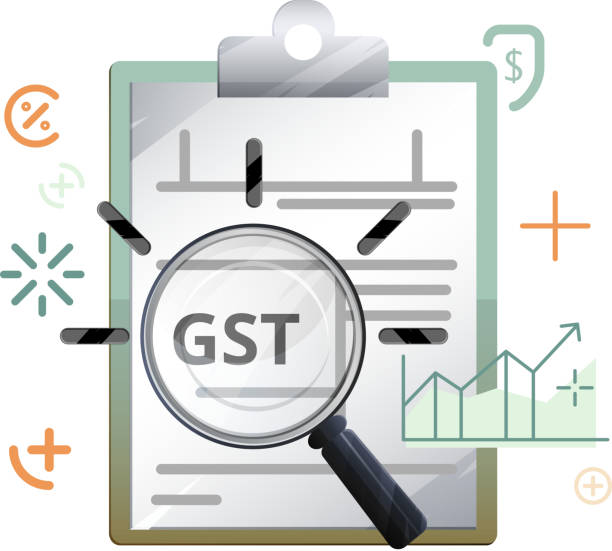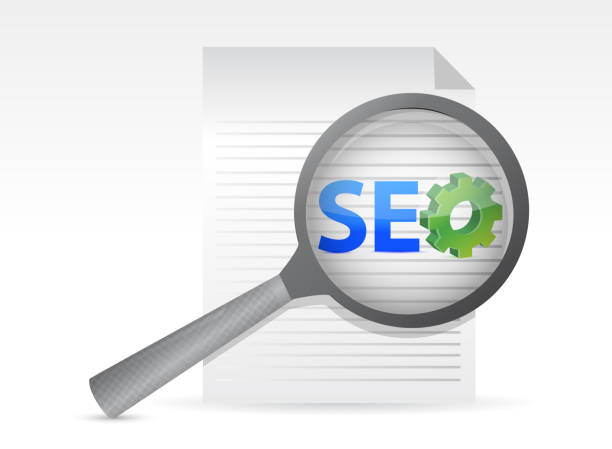What is SEO and why is it important?

What is SEO and why is it important?
#SEO (Search Engine Optimization) stands for Search Engine Optimization and refers to optimizing a website for search engines like Google, Bing, and Yahoo.
The main goal of SEO is to improve the website’s ranking in search results (SERP) for keywords relevant to your business.
When your website ranks higher, the probability of users finding and visiting it increases.
The Importance of SEO:
- Increase Organic Traffic Organic traffic refers to visitors who come to your website through natural search results.
This type of traffic is usually higher quality and more targeted, as the user was looking for information that your website provides. - Increase Brand Credibility Websites that rank high in search results are generally recognized as credible and reliable sources.
This can help increase your brand’s credibility among your audience. - Reduce Marketing Costs Compared to paid marketing methods like Pay-Per-Click (PPC) advertising, SEO can be a more cost-effective solution for attracting traffic and customers.
Although SEO requires time and effort, its results are usually more sustainable and long-term. - Improve User Experience SEO is not just about optimizing for search engines; it also includes improving user experience (UX).
A website optimized for SEO is typically faster, easier to use, and has valuable and relevant content.
In summary, SEO is an essential marketing strategy for any business that wants to succeed in the online world.
By optimizing your website for search engines, you can attract more organic traffic, increase your brand’s credibility, and ultimately boost your sales and profits.
For more information on this topic, you can refer to the Wikipedia SEO article.
Did you know that 94% of a company’s first impression is related to its website design?
Rasaweb, by providing professional corporate website design services, helps you create the best first impression.
✅ Create a professional and reliable image of your brand
✅ Easier attraction of potential customers and improved online position
⚡ Get free corporate website design consultation
Keyword Research, the Foundation of SEO

Keyword Research, the Foundation of SEO
Keyword research is the process of finding words and phrases that users search for in search engines to find information, products, or services related to your business.
These keywords should be used in your website’s content, titles, meta descriptions, and other SEO elements to ensure your website ranks for relevant searches.
Why is Keyword Research Important?
- Understand Your Audience Keyword research helps you understand how your audience thinks and what they are looking for.
- Identify Opportunities By identifying popular and low-competition keywords, you can find new opportunities to attract traffic and customers.
- Optimize Content Keyword research helps you optimize your website content for the right keywords and increase the likelihood of ranking in search results.
- Measure Performance By tracking your website’s ranking for target keywords, you can measure the performance of your SEO campaigns and adjust your strategy accordingly.
Keyword Research Tools There are many tools available to assist you with keyword research, including Google Keyword Planner, Semrush, Ahrefs, and Keyword Tool.
Each of these tools has different features and capabilities, so it’s best to try a few different ones to find the best fit for your needs.
Key Tips for Keyword Research
- Focus on Long-Tail Keywords These keywords are usually more specific and have less competition, which can drive more targeted traffic to your website.
- Competitor Analysis Examine what keywords your competitors are using and try to find better ones.
- Use Related Keywords Don’t just focus on primary keywords; also consider related and synonymous keywords.
- Continuous Updates Keyword research is an ongoing process, and you should regularly review and update your keywords.
SEO without keyword research is like building a house without a blueprint.
So, take the time to find the right keywords to make your website’s SEO more effective.
On-Page Website Optimization (On-Page SEO)

On-Page Website Optimization (On-Page SEO)
On-Page Website Optimization (On-Page SEO) refers to a set of techniques and actions you perform within your website to improve its ranking in search results.
This includes optimizing content, website structure, title tags, meta descriptions, images, and other page elements.
Most Important On-Page Website Optimization Factors
- High-Quality and Relevant Content Your website’s content must be valuable, informative, engaging, and relevant to your target keywords.
Try to produce content that answers users’ questions and meets their needs. - Title Tags Title tags are one of the most important ranking factors in search results.
Each page’s title tag should be unique, descriptive, and include primary keywords. - Meta Descriptions Meta descriptions are a summary of the page’s content displayed in search results.
Meta descriptions should be attractive and compelling to encourage users to click on your website’s link. - URL Structure Each page’s URL should be short, descriptive, and include primary keywords.
- Optimized Images Website images should be optimized to avoid reducing page loading speed.
Additionally, images should have alt tags that describe the image’s content. - Internal Linking Internal linking means creating links between different pages of your website.
This helps search engines better understand your website’s structure and identify more important pages. - Mobile Optimization Your website must be optimized for mobile devices, as many users access the internet via their mobile phones.
On-page optimization is an ongoing process, and you should regularly review and update your website to use the latest techniques and best practices.
| Factor | Description |
|---|---|
| Content | High-quality and relevant content |
| Title Tag | Includes primary keywords |
| Meta Description | Compelling summary of content |
| URL Structure | Short and descriptive |
Off-Page Website Optimization (Off-Page SEO)

Off-Page Website Optimization (Off-Page SEO)
Off-Page Website Optimization (Off-Page SEO) refers to a set of techniques and actions you perform outside your website to improve its ranking in search results.
This includes link building, social media marketing, branding, and other activities that help increase your website’s credibility and popularity.
Most Important Off-Page Website Optimization Factors
- Link Building Link building is the most crucial factor in off-page website optimization.
Links act as a “vote of confidence” from other websites to your website.
The more high-quality links your website receives from authoritative websites, the better your website’s ranking in search results will be. - Social Media Marketing Social media marketing can help increase brand awareness and website traffic.
By creating engaging content and sharing it on social networks, you can attract a wider audience. - Branding Branding means creating a positive and strong image of your brand in the minds of your audience.
By building a strong brand, you can gain customer trust and increase their loyalty. - Brand Mentions Whenever your brand name is mentioned on a website or in an article, this is a positive signal for search engines.
Try to get your brand mentioned on relevant and reputable websites.
Off-page optimization is a time-consuming and challenging process, but its results can be very valuable.
By creating a strong link-building and social media marketing strategy, you can significantly improve your website’s ranking in search results.
Do visitors leave your e-commerce site before making a purchase? Worry no more! With Rasaweb’s professional e-commerce website design services, solve the problem of converting visitors into customers forever!
✅ Significant increase in conversion rates and sales
✅ Unparalleled and engaging user experience
⚡ Contact us now for a free consultation!
Technical SEO, the Infrastructure of Website Optimization

Technical SEO, the Infrastructure of Website Optimization
Technical SEO refers to the technical aspects of your website that affect its ranking in search results.
This includes factors such as website speed, crawlability, website structure, XML sitemap, robots.txt file, and other technical settings.
Most Important Technical SEO Factors
- Website Speed Website speed is an important ranking factor.
Websites that load quickly provide a better user experience, and users are less likely to leave them. - Crawlability Search engines must be able to easily crawl and index your website.
Make sure your website has a logical structure and an XML sitemap. - Mobile-Friendliness Your website must be optimized for mobile devices, as many users access the internet via their mobile phones.
- SSL/HTTPS Using an SSL/HTTPS certificate is essential for your website’s security.
Search engines prioritize secure websites. - URL Structure Each page’s URL should be short, descriptive, and include primary keywords.
- XML Sitemap An XML sitemap helps search engines better understand your website’s structure and identify more important pages.
- robots.txt file The robots.txt file tells search engines which pages of your website should not be crawled and indexed.
Technical SEO is a complex process, but it is essential to ensure your website is accessible and understandable to search engines.
SEO requires proper infrastructure.
Slow websites generally do not rank well.
Competitor Analysis in SEO

Competitor Analysis in SEO
Competitor analysis is a vital part of any SEO strategy.
By examining your competitors’ websites and SEO strategies, you can gain valuable insights into target keywords, quality content, link building, and other ranking factors.
Why is Competitor Analysis Important?
- Identify Opportunities By examining your competitors’ keywords and content, you can find new opportunities to attract traffic and customers.
- Improve SEO Strategy By understanding your competitors’ SEO strategies, you can improve your own strategy and achieve better performance.
- Avoid Mistakes By analyzing your competitors’ mistakes, you can prevent repeating them.
- Measure Performance By comparing your performance with that of your competitors, you can measure your progress and adjust your strategy accordingly.
How to Analyze Your Competitors?
- Identify Competitors First, you need to identify your main competitors.
These are websites that rank for similar keywords as yours. - Keyword Analysis Examine the keywords for which your competitors are ranking.
Use keyword research tools to find new and relevant keywords. - Content Analysis Review your competitors’ content.
Do they produce high-quality and informative content? Do they effectively use their target keywords? - Link Building Analysis Examine the inbound links to your competitors’ websites.
Which websites are linking to them? What link-building strategy do they follow? - Social Media Analysis Review your competitors’ presence on social media.
Are they active on social media? Do they produce engaging and shareable content?
Competitor analysis is an ongoing process, and you should regularly review your competitors to stay informed of the latest strategies and best practices.
SEO without competitor analysis is like driving without a rearview mirror.
User Experience (UX) and Its Impact on SEO

User Experience (UX) and Its Impact on SEO
User Experience (UX) refers to a user’s feelings and perception of your website.
A good user experience means that users can easily find the information they need, navigate your website effortlessly, and enjoy their visit.
Good user experience is not only important for users but also crucial for SEO.
Why Does User Experience Affect SEO?
- Bounce Rate Bounce rate refers to the percentage of users who leave your website after visiting a single page, without visiting other pages.
A high bounce rate indicates that users are not satisfied with the page content or cannot easily find the information they need. - Dwell Time Dwell time refers to the amount of time users spend on your website.
A high dwell time indicates that users enjoy your website’s content and are interested in it. - Click-Through Rate (CTR) Click-through rate refers to the percentage of users who click on your website’s link after seeing it in search results.
A high click-through rate indicates that your website’s title and meta description are attractive and compelling. - Conversion Rate Conversion rate refers to the percentage of users who perform a desired action on your website, such as purchasing a product, subscribing to a newsletter, or contacting you.
A high conversion rate indicates that your website effectively encourages users to perform the desired actions.
How to Improve Your Website’s User Experience?
- Website Speed Ensure your website loads quickly.
- Responsive Design Your website should be optimized for mobile devices.
- Easy Navigation Users should be able to easily navigate your website and find the information they need.
- Quality Content Your website’s content must be valuable, informative, and engaging.
- Visually Appealing Design Your website should have an attractive and modern visual design.
| Metric | Impact on SEO |
|---|---|
| Bounce Rate | Negative |
| Dwell Time | Positive |
| Click-Through Rate | Positive |
| Conversion Rate | Positive |
User experience and SEO are two sides of the same coin.
By improving your website’s user experience, you can enhance its ranking in search results and attract more traffic.
Successful SEO is not possible without considering user experience.
What is Local SEO?

What is Local SEO?
Local SEO refers to optimizing your website and online presence for local searches.
This means that when people in your area are looking for products or services like yours, your website will appear in search results.
Why is Local SEO Important?
- Attract Local Customers Local SEO helps you attract customers who live near or travel to your business.
- Increase Sales By appearing in local search results, you can increase your sales.
- Compete with Larger Businesses Local SEO helps you compete with larger businesses that have bigger marketing budgets.
- Increase Brand Awareness Local SEO helps you increase brand awareness in your local area.
How to Perform Local SEO?
- Create and Optimize Your Google My Business Profile Google My Business is a free profile that allows you to display your business information in Google Search and Google Maps results.
- Optimize Your Website for Local Searches Ensure your website includes your contact information, address, and business hours.
Also, use local keywords in your website content. - Get Reviews Customer reviews on Google My Business and other review websites have a significant impact on your ranking in search results.
Ask your customers to write reviews for you. - Create Citations Citations are your business’s name, address, and phone number mentioned on other websites.
Creating citations on reputable local websites can help improve your ranking in search results.
Local SEO is an essential marketing strategy for any business looking to attract local customers.
Local SEO means being visible in your neighborhood and is crucial for small businesses.
Did you know that customers’ first impression of your company is your website? With a powerful corporate website from Rasaweb, multiply your business’s credibility!
✅ Custom and eye-catching design tailored to your brand
✅ Improved user experience and increased customer acquisition
⚡ Get a free consultation now!
Measuring and Analyzing SEO Results

Measuring and Analyzing SEO Results
Measuring and analyzing SEO results is essential to understand whether your SEO strategy is effective.
By tracking and analyzing key metrics, you can identify your strengths and weaknesses and adjust your strategy accordingly.
Most Important SEO Measurement Metrics
- Organic Traffic Organic traffic refers to the number of visitors who come to your website through natural search results.
An increase in organic traffic indicates that your SEO strategy is effective. - Keyword Rankings Track your website’s ranking for target keywords.
Improved rankings indicate that your website is performing better for relevant keywords. - Bounce Rate Bounce rate refers to the percentage of users who leave your website after visiting a single page, without visiting other pages.
A decrease in bounce rate indicates that your website’s user experience is improving. - Dwell Time Dwell time refers to the amount of time users spend on your website.
An increase in dwell time indicates that users enjoy your website’s content. - Conversion Rate Conversion rate refers to the percentage of users who perform a desired action on your website, such as purchasing a product, subscribing to a newsletter, or contacting you.
An increase in conversion rate indicates that your website effectively encourages users to perform the desired actions.
SEO Measurement Tools
- Google Analytics Google Analytics is a free tool that allows you to track and analyze your website traffic.
- Google Search Console Google Search Console is a free tool that allows you to monitor your website’s performance in Google search results.
- Semrush Semrush is a paid tool that allows you to analyze keywords, competitors, and track your website’s SEO performance.
- Ahrefs Ahrefs is a paid tool that allows you to analyze inbound links to your website and your competitors’ websites, and research keywords.
Measuring and analyzing SEO results is an ongoing process, and you should regularly track and analyze key metrics to ensure the effectiveness of your SEO strategy.
SEO without analysis is like shooting in the dark.
The Future of SEO and Upcoming Trends

The Future of SEO and Upcoming Trends
The world of SEO is constantly evolving.
With technological advancements and changing user behavior, new trends are emerging in SEO that need to be addressed.
In this section, we will discuss some of the most important upcoming SEO trends in the coming years.
Most Important SEO Trends for the Future
- Artificial Intelligence (AI) Artificial intelligence will play an increasing role in SEO.
Search engines will use AI to better understand content and provide more relevant search results to users. - Voice Search With the increasing use of smart devices such as mobile phones and smart speakers, voice search will become more important.
- Video Content Video content will continue to be one of the most popular types of content.
Producing high-quality video content can help increase your website’s traffic and ranking. - User Experience (UX) User experience will remain one of the most important ranking factors.
Websites that provide a good user experience will have a better ranking in search results. - Expert, Authoritative, and Trustworthy Content (E-A-T) Google places great importance on expert, authoritative, and trustworthy content.
Try to produce content that is written by experts and provides accurate and up-to-date information.
To succeed in future SEO, you need to pay attention to these trends and adjust your SEO strategy accordingly.
SEO requires continuous learning and knowledge updates.
Frequently Asked Questions
| Question | Answer |
|---|---|
| What is SEO? | SEO, or Search Engine Optimization, is the process of increasing the quality and quantity of website traffic by improving the site’s ranking in natural (organic) search engine results like Google. |
| What are the main types of SEO? | SEO is divided into three main categories: On-Page SEO, Off-Page SEO, and Technical SEO. |
| What does On-Page SEO include? | On-Page SEO includes optimizing elements within the website, such as keywords, title tags, meta descriptions, content, URL structure, images, and internal links. |
| What is Off-Page SEO? | Off-Page SEO refers to activities outside the website that help improve its ranking, such as backlink building, social media marketing, and brand mentions. |
| What is Technical SEO? | Technical SEO deals with optimizing the technical aspects of a website to help it be better crawled and indexed by search engines. This includes site speed, mobile-friendliness, site structure, sitemaps, and the Robots.txt file. |
| What role do keywords play in SEO? | Keywords are phrases that users enter into search engines. Proper and targeted use of relevant keywords in content and site elements helps search engines understand the topic of your page and display it for relevant searches. |
| What is a backlink and why is it important? | A backlink, or inbound link, is a link from one website to another. Backlinks act as a “vote of confidence” from other sites for your website and play a significant role in credibility and increasing site ranking, especially if they come from authoritative sites. |
| What impact does quality content have on SEO? | High-quality, relevant, comprehensive, and unique content not only attracts and retains users but also shows search engines that your page is valuable. This helps improve ranking, reduce bounce rate, and increase user dwell time on the site. |
| Why is site loading speed important for SEO? | Site loading speed is an important ranking factor for Google. Faster sites provide a better user experience, have lower bounce rates, and are preferred by search engines. |
| Is SEO a one-time process? | No, SEO is a continuous and long-term process. Search engine algorithms are constantly changing, competition is increasing, and site content also needs updating. Therefore, SEO requires continuous monitoring, analysis, and optimization. |
And other advertising services by Rasaweb Advertising Agency
- Smart Social Media: A creative platform for improving customer behavior analysis with Google Ads management.
- Smart UI/UX: A professional solution for increasing sales by focusing on attractive user interface design.
- Smart Advertising Campaign: A combination of creativity and technology for campaign management through key page optimization.
- Smart Link Building: A professional solution for analyzing customer behavior with a focus on Google Ads management.
- Smart Link Building: A creative platform for improving customer acquisition through key page optimization.
And over a hundred other services in the field of internet advertising, advertising consultation, and organizational solutions
Internet Advertising | Advertising Strategy | Advertorial
Sources
Comprehensive SEO Guide at Alefba Academy
What is SEO? Complete SEO Training at Modirweb
Free and Practical SEO Training at Rastin Web
What is SEO and How Does It Work? (Comprehensive Guide)
? In today’s fast-paced and competitive world, a powerful online presence is paramount. Rasaweb Afarin Digital Marketing Agency, specializing in SEO, content marketing, and responsive website design, helps your business on its path to growth and success.
📍 Tehran, Mirdamad Street, next to Bank Markazi, Southern Kazeroon Alley, Ramin Alley, No. 6



